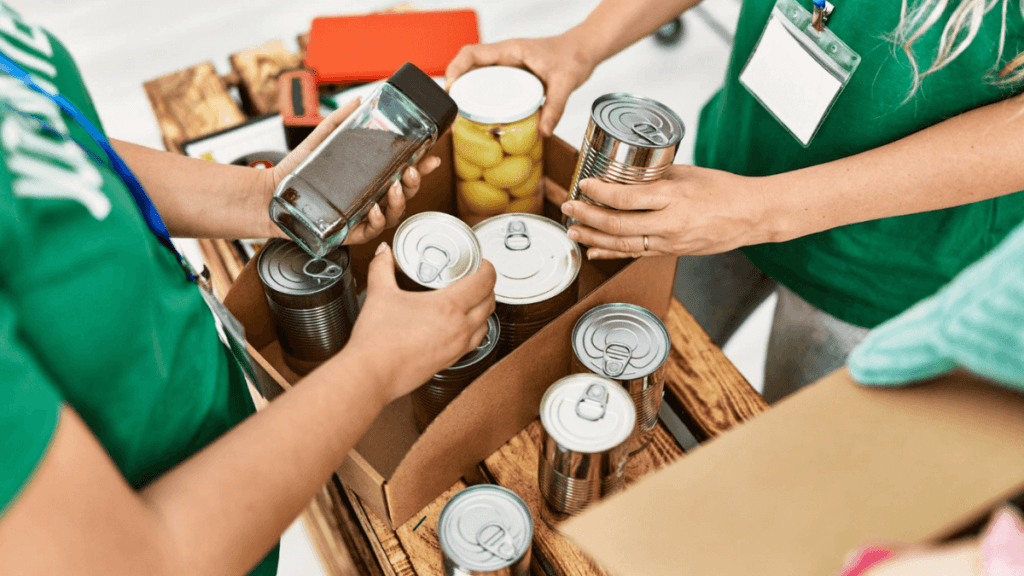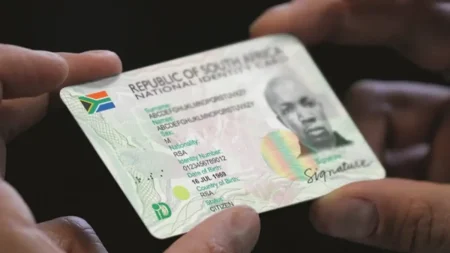In South Africa, especially in Gauteng, food parcel distribution is a vital service that provides relief to struggling families. With rising unemployment and food prices, many households rely on food parcel distribution programs to put meals on the table. This system is driven by organizations like Food For Life South Africa, FoodForward SA, and The Nelson Mandela Foundation, who work hand-in-hand with local groups and volunteers to reach those most in need.
This guide outlines everything you need to know about food parcel distribution in Gauteng—where to go, how it works, who qualifies, and what you can expect in a food parcel.
Organizations Involved in Food Parcel Distribution
Food For Life South Africa
Food For Life South Africa plays a key role in food parcel distribution by offering plant-based meals and food parcels in Gauteng. With branches in Midrand, Sandton, Pretoria, Soweto, and South Central Gauteng, they reach deep into communities where hunger is most severe. These branches serve as local distribution points where food is handed out during scheduled outreach programs.
FoodForward SA
FoodForward SA specializes in large-scale food parcel distribution through surplus food recovery. Their model ensures that good, nutritious food is not wasted but instead redirected to over 2,500 non-profits, including many in Gauteng. They use platforms like FoodShare and mobile rural depots to streamline their food parcel distribution process.
The Nelson Mandela Foundation
Through its Each 1, Feed 1 campaign, the Nelson Mandela Foundation supports food parcel distribution across Gauteng. This campaign was launched during the pandemic but continues to help vulnerable families in areas like Daveyton and South Hills. Their parcels are designed to feed families for a month and are distributed with dignity and care.
Local Community Organizations and Food Banks
Beyond the large entities, local food banks and community groups form the backbone of food parcel distribution at grassroots level. These groups operate in places like Tembisa, Orange Farm, and Mamelodi, often requiring individuals to register or be referred to receive food assistance.
Where Food Parcel Distribution Happens in Gauteng
Several locations across Gauteng are active in food parcel distribution:
Food For Life branches: Midrand, Sandton, Soweto, Pretoria, and surrounding areas.
Mobile depots by FoodForward SA: Serve both rural and urban neighborhoods.
Campaigns by the Nelson Mandela Foundation: Found in Daveyton, South Hills, and other townships.
Local community centers and food banks: Often announced on local noticeboards and through churches or clinics.
Each location has its own distribution schedule, and some operate monthly while others provide weekly or emergency-based support.
Related: 4 Ways to Access Food Parcels in South Africa
How to Qualify for Food Parcel Distribution
Getting access to food parcel distribution is generally straightforward, but there are steps involved:
Referral Process: Most programs require a referral from a community leader, church, social worker, or NGO.
Registration: You may be asked to register your name, ID, and household details at a local distribution site.
Voucher System: Some organizations use vouchers that can be exchanged for food parcels on distribution days.
This helps ensure that food parcel distribution goes to those most in need and prevents duplication.
What’s in a Food Parcel?
When receiving support from a food parcel distribution program, you can typically expect:
Staples: Maize meal, rice, pasta
Proteins: Canned fish, baked beans, soya mince
Vegetables: Tinned produce or fresh items like onions and potatoes
Extras: Tea, sugar, cooking oil, salt
Occasional Add-ons: Soap, sanitary items, or face masks (based on availability)
These items are carefully chosen to ensure that the food parcel provides nutrition and lasts for at least a week for a small household.
How to Find a Food Parcel Distribution Point Near You
To locate the nearest food parcel distribution center in Gauteng:
Visit official websites:
Food For Life South Africa – fflsa.org
FoodForward SA – foodforwardsa.org
Nelson Mandela Foundation – nelsonmandela.org
Talk to local leaders:
Ward councillors, pastors, clinic staff, and community workers often have current information.
Use social media:
Many NGOs and community centers post food parcel distribution dates on Facebook or WhatsApp groups.
Check noticeboards:
Public places like schools, clinics, and libraries frequently advertise upcoming distribution events.
Frequently Asked Questions (FAQs)
1. What is food parcel distribution?
Food parcel distribution is a service where essential food items are collected, packed, and distributed to families or individuals in need. The aim is to support those experiencing hunger or financial difficulty by providing a parcel of groceries that can last a week or more.
2. Who qualifies for food parcel distribution in Gauteng?
Eligibility varies by organization, but generally, individuals who are unemployed, have no steady income, are elderly, disabled, or part of a vulnerable household (such as single mothers) may qualify. Most groups require a referral from a local authority, clinic, or church.
3. Do I need to pay for a food parcel?
No. Food parcels are distributed for free to qualifying individuals. However, some centers may require you to register or provide identification to prevent misuse of the program.
4. How often can I receive a food parcel?
The frequency of food parcel distribution depends on the organization’s capacity and availability of supplies. Some provide weekly or monthly parcels, while others may offer once-off emergency assistance. Always check with your local center for details.
5. Where can I go to register for a food parcel?
You can register at your nearest community center, church, clinic, or local NGO that partners with food parcel distribution programs. They will guide you on what documents you need and help you apply.
6. Can I apply for someone else?
Yes, in many cases you can apply on behalf of someone else, especially if they are elderly or disabled. You may need to bring their ID and a letter of consent or explanation of the situation.
7. What should I bring on the day of food parcel distribution?
Bring your ID, referral letter or voucher (if required), and something to carry the food parcel in (like a bag or trolley). It’s also a good idea to arrive early, as parcels are usually handed out on a first-come, first-served basis.
8. How can I help or donate to food parcel distribution efforts?
You can help by donating food, money, or your time. Visit the websites of organizations like Food For Life South Africa, FoodForward SA, and the Nelson Mandela Foundation to see how you can contribute or volunteer.
Food parcel distribution in Gauteng has become a lifeline for many families who face daily food insecurity. Through the dedication of organizations like Food For Life South Africa, FoodForward SA, and the Nelson Mandela Foundation, as well as the tireless efforts of local volunteers, thousands of people are able to access meals and restore their dignity.
If you are in need, don’t hesitate to reach out to your local community centers or check online for upcoming distribution events. And if you’re in a position to help, consider supporting these organizations through donations or volunteer work. Food parcel distribution is not just about feeding people—it’s about building stronger, more resilient communities.










